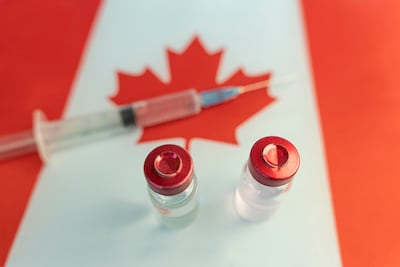Canada
Canada is looking to expedite the review of certain drug classes by tapping trusted foreign regulators in a bid to get new medicines to patients sooner.
Canada’s health care products regulator is seeking to strengthen its oversight of decentralized clinical trials.
Regulators in the US and Canada are working together to streamline approval timelines for generic drugs through a voluntary information sharing program.
An early negotiation process for certain cancer drugs could cut pricing negotiation times by up to six months, while a targeted process for non-complex drug negotiations could lead to timelines that are 30–45% faster than standard negotiations.
Clinical trial sponsors could soon benefit from a streamlined clinical trial approval process in Australia, Canada, Singapore, Switzerland and the UK under a new ACCESS Consortium project.
Canada’s drug regulator is using amended drug laws to increase the use of regulatory reliance pathways to improve efficiency and support international alignment, while the UK’s MHRA has held talks with Australia’s TGA on topics including the role of AI in regulatory frameworks.
Health Canada has approved four new drugs and 12 label variations so far this year via Project Orbis, a combined figure that already exceeds the annual approval figures for the two previous years. The agency explains the factors that impact annual approvals and highlights the pathway’s benefits.
Canadian politicians must “move quickly” to introduce policies that will speed up access to medicines, such as by broadening criteria for the temporary reimbursement of medicines, the Canadian Chamber of Commerce says.
Final guidelines explaining how staff at Canada’s Patented Medicine Prices Review Board should go about identifying drugs that could be considered for an excessive price hearing will come into force soon.
Health Canada’s proposal to no longer require biosimilar manufacturers to prove the safety and efficacy of their product through Phase III clinical trials marks a pivotal change in Canada’s regulatory approach.
Recognizing that the evidence it receives in applications for health technology assessments will increasingly be informed by artificial intelligence, the CDA-AMC has clarified its expectations for companies that use AI methods in the generation and/or reporting of evidence.
An initiative run by health technology appraisal (HTA) bodies in the US, Canada and England is looking at how non-traditional treatment benefits, such as the value of hope and scientific spillover, can inform appraisals and understanding of a product’s value.
The Canadian regulator says its current policy on identifying and labeling drug products in “kits” is insufficient to address the diverse types of co-packaged drug products that are entering the market.
Canada’s new guidance on rare disease registries is based on international guidelines, but in some areas there remains work to ensure that implementation of some recommendations is feasible in the Canadian context.
As part of efforts to modernize its clinical trials framework, the Canadian regulator is looking to better facilitate expanded access clinical trials, which allow investigational drugs to reach patients with serious conditions before they are approved.
Regulatory authorities from multiple regions are considering extending a pilot project related to collaborative assessments of post-approval chemistry, manufacturing and controls changes, with a focus on the supply of critical medicines.
A new collaboration of health technology appraisal bodies in the US, England and Canada could lead to better alignment on HTA methodology in the future.
Health technology assessment bodies in England, the US, Canada, Australia, the Netherlands and Colombia have joined forces to produce guidance for drug developers on using surrogate endpoints for cost-effectiveness analyses.
If all goes to plan, improvements the national health technology assessment agency wants to make to its drug review procedures – including the tailored, complex and accelerated access reviews – could become effective for applications received in the first half of 2025.


















